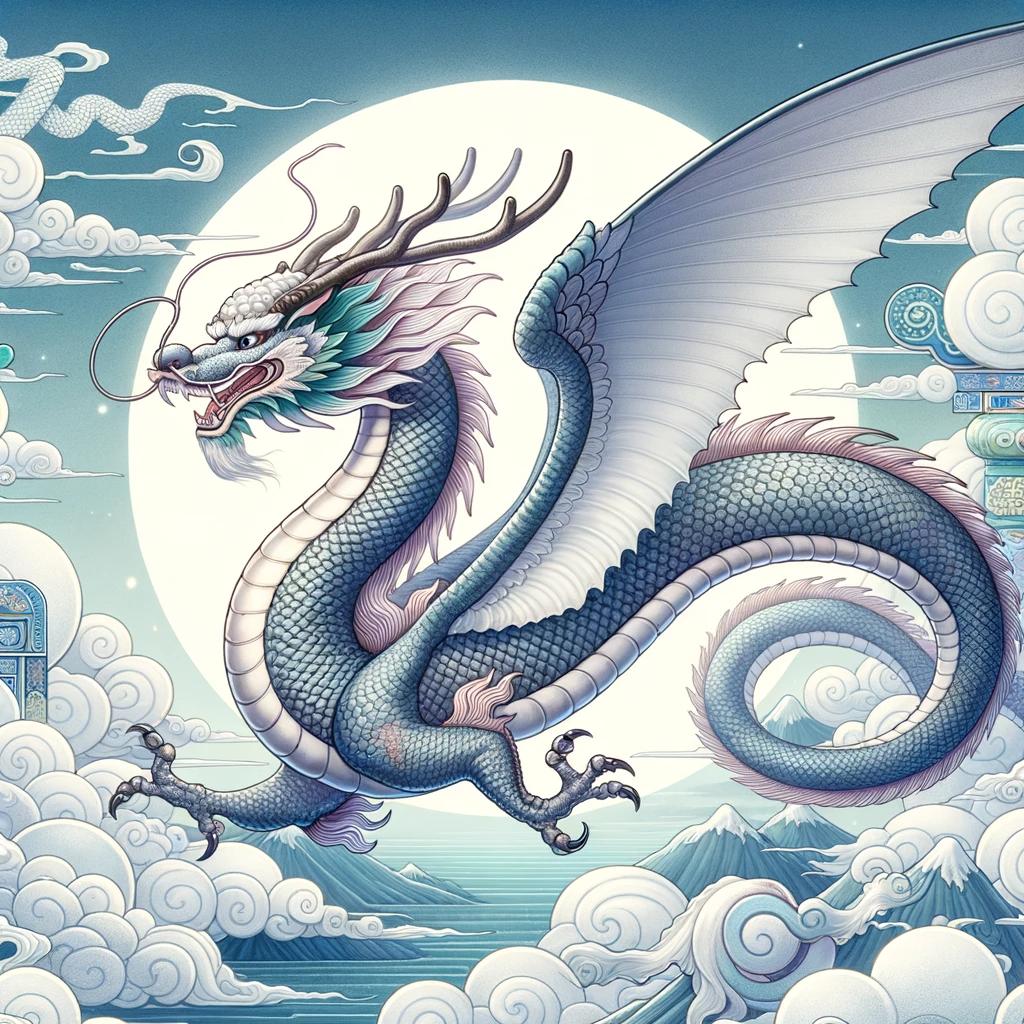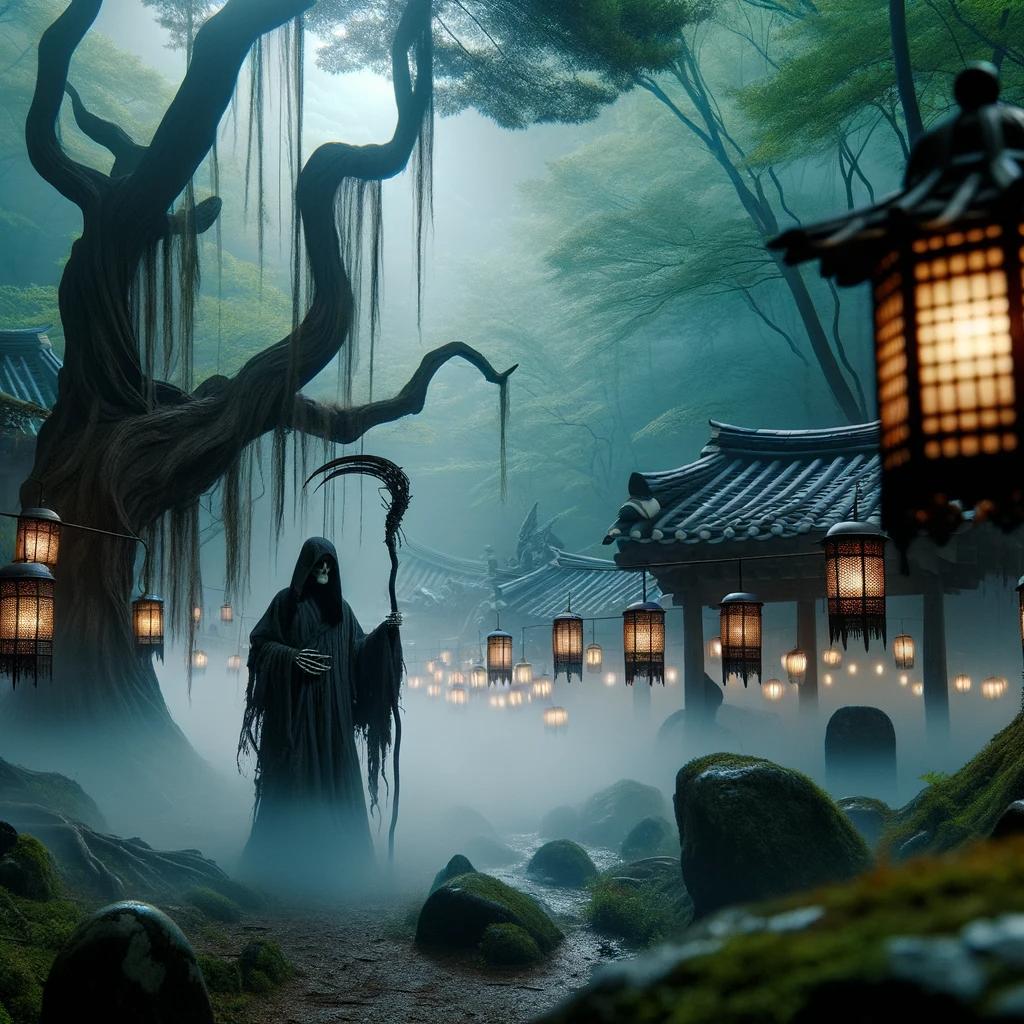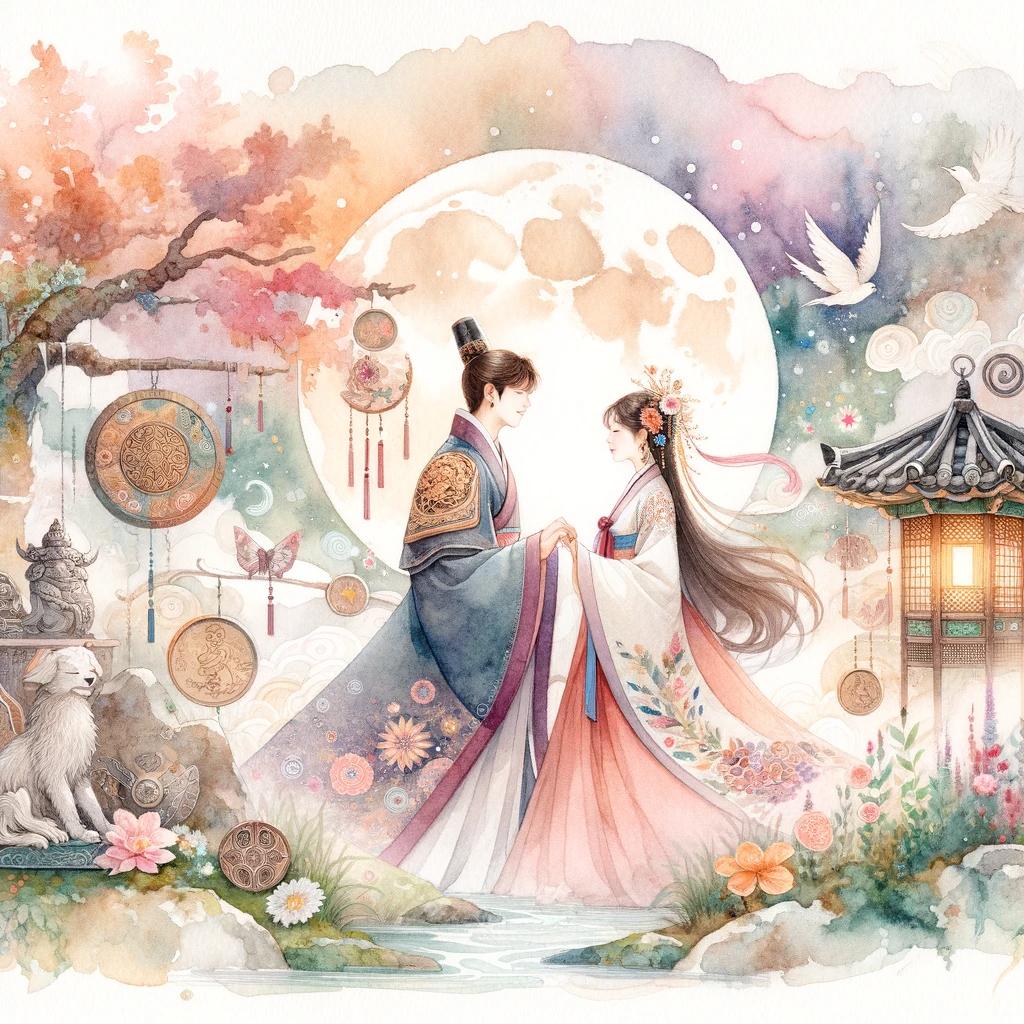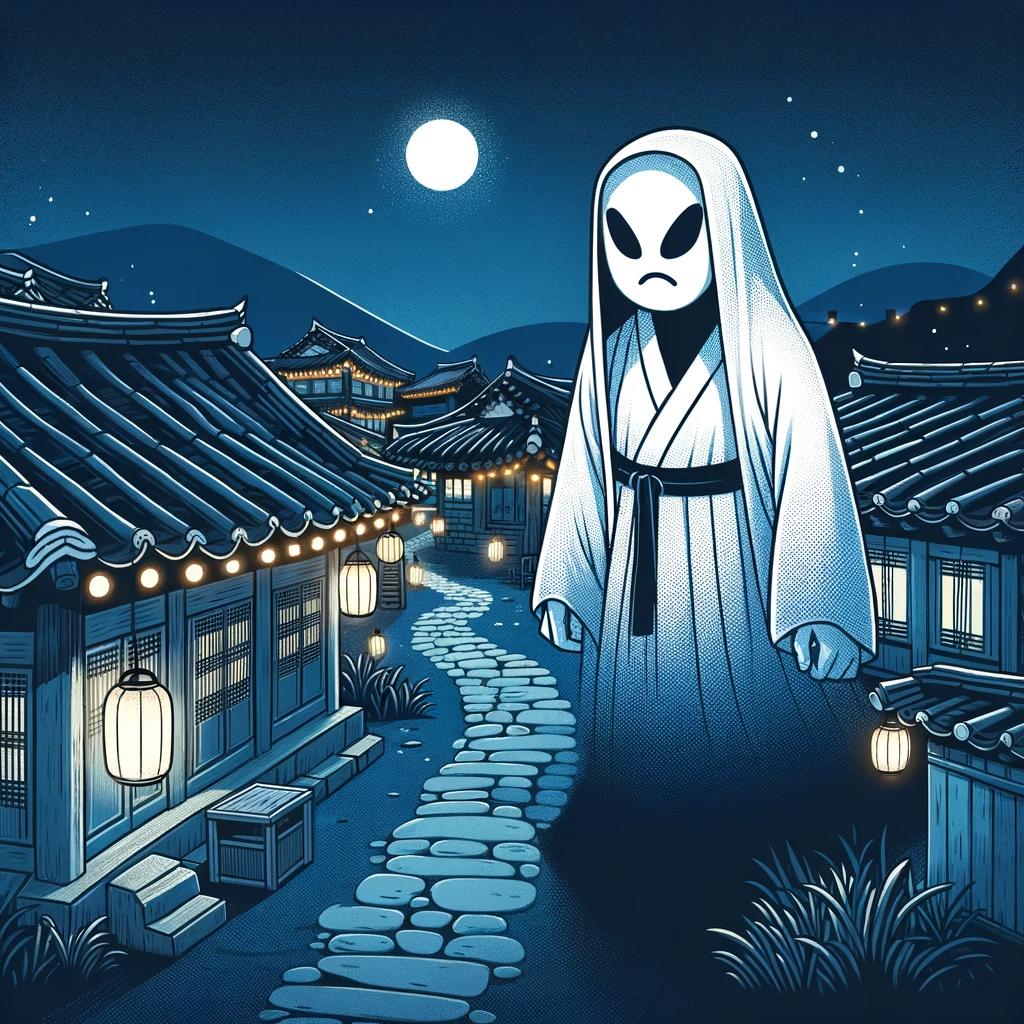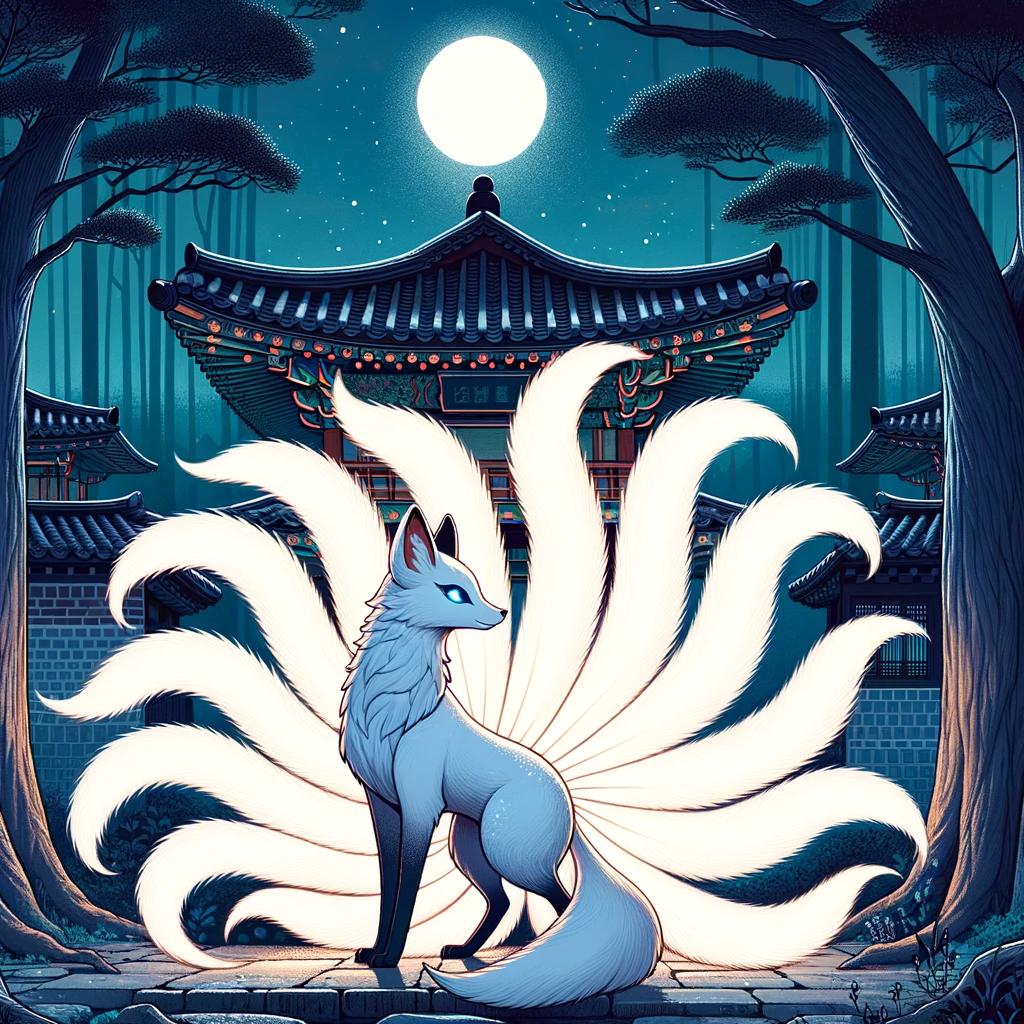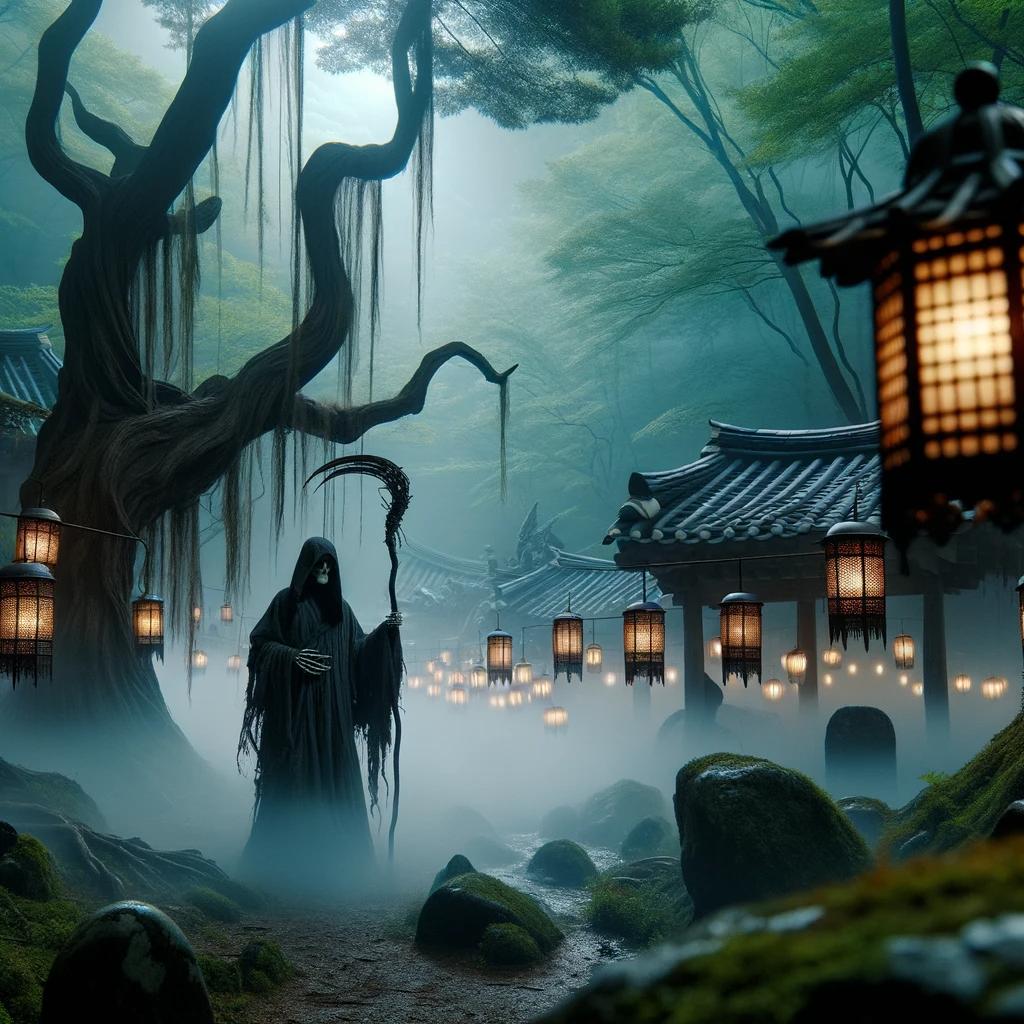Dalgyal Gwishin: Un Terrifying Korean Myth That Will Haunt Your Nightmares
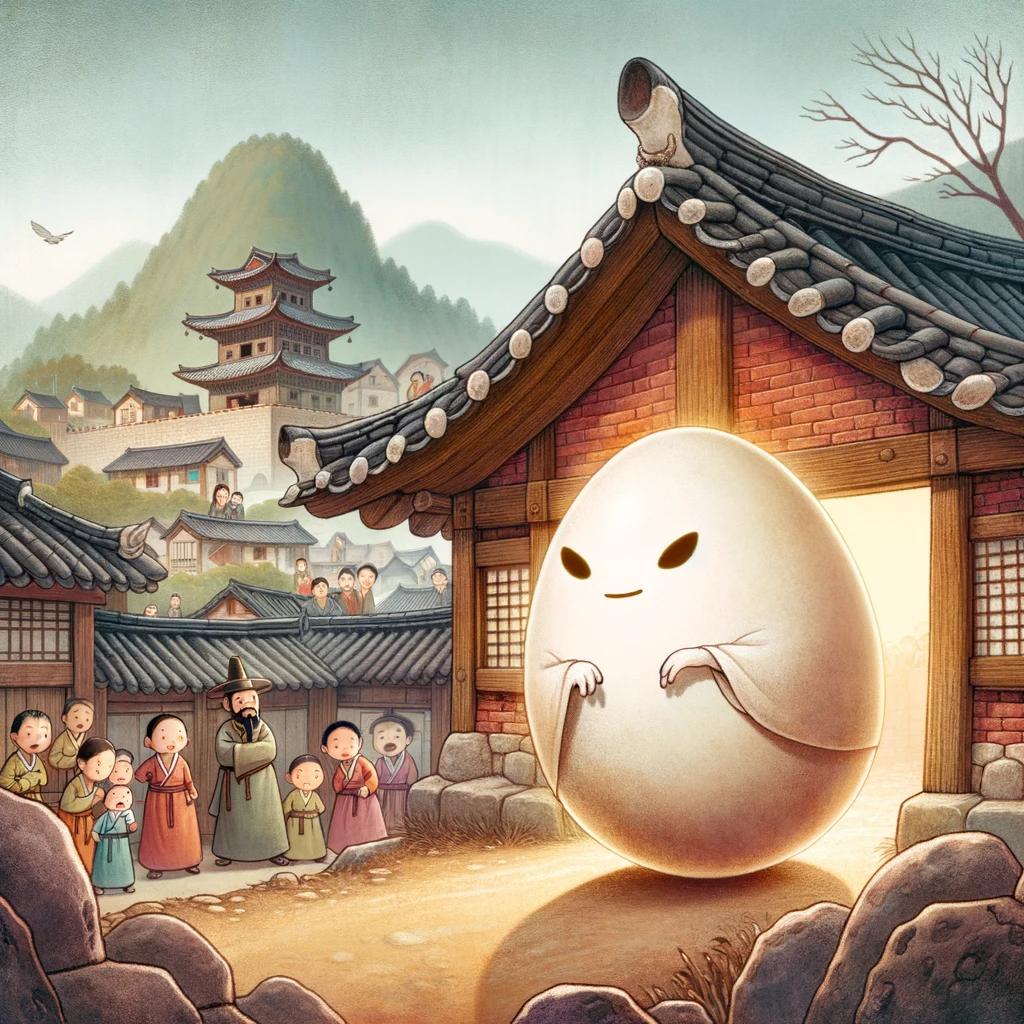
Dalgyal Gwishin, also known as the Egg Ghost, is a fascinating and terrifying figure in Korean mythology. With its egg-like appearance and lack of facial features, this ghost has captured the imagination of many.
Legend has it that encountering an Egg Ghost is a sign of imminent death, and some even believe that these spirits can transform into eggs to hide until they choose to reveal themselves.
In this article, we will explore the origins, characteristics, and cultural significance of Dalgyal Gwishin, as well as its connections to other spirits in Korean folklore.
The Mythology of Dalgyal Gwishin
The mythology surrounding Dalgyal Gwishin, also known as the Egg Ghost, is deeply rooted in Korean folklore.
This ethereal entity has captured the imagination of many with its unique characteristics. To truly understand the significance of Dalgyal Gwishin, it is crucial to explore the origins and history of Korean mythology as well as gain an introduction to this enigmatic spirit.
Origins and History of Korean Mythology
Korean mythology has a rich and complex heritage that dates back centuries. It blends indigenous beliefs with influences from neighboring cultures, contributing to a diverse and captivating mythological tapestry.
The lore is influenced by shamanism, Confucianism, Buddhism, and Taoism, shaping the unique spiritual landscape of Korea.
Introduction to Dalgyal Gwishin
Dalgyal Gwishin, often referred to as the Egg Ghost, is a supernatural being that has captured the fascination and fear of many. Its distinctive egg-shaped appearance, devoid of any facial features, lends an eerie aura to this entity.
Legends surrounding Dalgyal Gwishin revolve around its ominous presence as a harbinger of imminent death. The origins and true nature of this ghost remain a mystery, but it is believed that some Egg Ghosts may become increasingly sinister over time, while others possess the ability to transform into eggs and remain hidden until they choose to reveal themselves.
Exploring the Terrifying Egg Ghost
The Egg Ghost, also known as Dalgyal Gwishin, is a haunting figure in Korean mythology. This section delves into various aspects of this eerie spirit, from its physical characteristics and features to the legends and folklore that surround it.
Additionally, we’ll explore the Egg Ghost’s unique transformation abilities and the chilling encounters associated with it.
Physical Characteristics and Features
The Egg Ghost is easily recognizable due to its egg-shaped form, but what truly sets it apart is its lack of facial features. It has no arms, legs, head, eyes, nose, or mouth, giving it an unnerving presence.
Its ghostly appearance instills fear in those who encounter it, as its featureless visage leaves a lasting impression.
Legends and Folklore Surrounding the Egg Ghost
The Egg Ghost is shrouded in mystery and fear within Korean folklore. According to legend, coming face-to-face with an Egg Ghost is a forewarning of imminent death, an omen that strikes terror into the hearts of those who witness it.
The origin and true nature of the Egg Ghost remain uncertain, but rumors circulate that some may become corrupted over time, increasing their malevolence. It is also whispered that these spirits have the ability to transform themselves into eggs, concealing their presence until they choose to reveal themselves.
Transformation Abilities and Haunting Encounters
The Egg Ghost possesses the uncanny ability to transform, adding to its mystique. It can assume the form of an egg, hiding in plain sight until it decides to manifest. These transformations contribute to the eerie encounters and disturbing experiences reported by those who have come face-to-face with the Egg Ghost.
The haunting encounters often leave individuals feeling unsettled and fearful, as they sense the presence of this spectral entity that defies conventional understanding.
Similarities and Connections with Other Korean Spirits
When exploring the realm of Korean mythology, it becomes evident that there are numerous spirits and entities that hold a significant place in folklore. One such spirit that shares similarities with Dalgyal Gwishin is the Mujagui, commonly known as ghosts without descendants.
Mujagui: Ghosts without Descendants
The Mujagui are restless spirits in Korean mythology who face eternal torment due to the absence of descendants or relatives to perform ancestral rites and commemorations on their behalf. As a result, they wander aimlessly, unable to find solace in the afterlife.
Their existence is laced with sorrow, and they are often depicted as sad and vengeful souls. Similar to the Dalgyal Gwishin, the Mujagui embody a sense of loss and longing, trapped in a perpetual state of unrest.
Comparisons between Dalgyal Gwishin and Mujagui
While the Dalgyal Gwishin and Mujagui are distinct entities, there are significant parallels between them. Both spirits evoke feelings of fear and unease, instilling a sense of foreboding in those who encounter them.
Their appearances also share similarities, with the Dalgyal Gwishin’s egg-like form and absence of facial features resonating with the haunting, featureless presence of the Mujagui. These physical traits enhance their eerie nature, evoking a chilling presence that lingers long after the encounter.
Additionally, both spirits represent the consequences of unfulfilled connections and the absence of ancestral rituals. The Dalgyal Gwishin’s lack of identity and origin, alongside the Mujagui’s longing for descendants to honor them, emphasizes the importance of familial ties and the continuation of traditions in Korean culture.
It is through these connections and shared themes that we can deepen our understanding of the Dalgyal Gwishin and its place within the rich tapestry of Korean mythology.
Understanding the Cultural Significance
The cultural significance of Dalgyal Gwishin, the Egg Ghost, is deeply rooted in Korean mythology.
Its role within the folklore and beliefs of the Korean people showcases its impact and importance in their cultural heritage.
Role of Dalgyal Gwishin in Korean Mythology
Dalgyal Gwishin occupies a unique position in Korean mythology, representing the fear of impending death and the mysteries of the afterlife. Its presence serves as a reminder of the fragility of life and the unknown challenges that await beyond death.
This mythological figure leaves a lasting impression on individuals, influencing their perceptions of mortality and the supernatural.
Cultural Beliefs and Superstitions Associated with the Egg Ghost
- Korean folklore portrays Dalgyal Gwishin as a foreboding omen, its sighting believed to predict imminent death. This belief instills fear and caution in individuals, reinforcing the cultural value placed on respecting supernatural forces.
- Superstitions surrounding the Egg Ghost focus on avoiding encounters through specific behaviors and rituals.
These beliefs shape aspects of daily life, illustrating the cultural significance attached to eschewing potential encounters with malevolent spirits.
- The presence of Dalgyal Gwishin in Korean culture reinforces the deep respect and connection the Korean people have with their spiritual realm.
It underscores the importance of understanding and acknowledging the supernatural forces that intertwine with their everyday lives.
Popular Media and References to Dalgyal Gwishin
The allure of Dalgyal Gwishin extends beyond traditional mythology, impacting popular culture in various forms of media. Korean literature, films, and television often draw inspiration from the Egg Ghost, incorporating its theme into thrilling narratives that captivate audiences both domestically and internationally.
Its presence in contemporary media speaks to the enduring fascination with this iconic supernatural entity.
.











